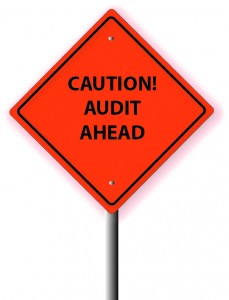Audit Alert! A Candid Look at Professional, Consultant and Purchased Labor
January 23, 2014
In response to the need for further audit guidance on professional, consultant and purchased labor, a Memorandum for Regional Directors (MRD) titled, “Audit Alert on Professional and Consultant Service Costs (FAR 31.205-33) and Purchased Labor” was released in December 2013. With the release of this memorandum, the DCAA seeks to ensure that auditors are appropriately testing for allowability and applying proper audit criteria based on FAR 31.205-33(f) for professional and consultant services. Additionally, the basis of these audits should be the nature of each claimed cost, rather than the account where the cost is recorded. Therefore, it is important to be conscious of costs booked to an account titled ‘Consultants’ and verify that these costs are in fact true consultant costs as defined by FAR 31.205-33. Whether your company is aware of these requirements or not, it will prove beneficial to understand the difference in audit guidance for professional and consultant services versus purchased labor.
So what exactly do you need to know?
Auditors and contractors both first need to recognize what type of cost is being audited in order to better comprehend the applicable audit procedures. The best way to understand most audit guidance is to begin with the definitions and apply these definitions to examples. FAR 31.205-33(a) defines professional and consultant services as: “services rendered by persons who are members of a particular profession or possess a special skill and who are not officers or employees of the contractor.” It further states that examples include: “services acquired by contractors or subcontractors in order to enhance their legal, economic, financial, or technical positions.” This definition does not apply to purchased labor. Whereas professional and consultant labor is defined by special skill and services, examples of purchased labor are defined in more basic terms as janitorial, clerical, or security labor. The Frequently Asked Questions segment of the memorandum illustrates additional examples. Questions 1 and 3 in particular are worthwhile “tests” to verify that what you are classifying in your system as purchased versus consultant labor is accurate.
Next, it is important to know what audit procedures are performed on professional and consultant services and purchased labor. Contrary to what some contractors may believe, the same requirements are not applicable to both types of labor. Let us first discuss the requirements for professional and consultant services. FAR 31.205-33 only applies to professional and consultant services and further, FAR 31.205-33(f) specifically lists documentation requirements. Documentation requirements under the FAR include three essential items:
- The first requirement is detail of all agreements including explanations of what the consultant would be doing for the contractor.
- Second, invoice copies of actual services rendered, including sufficient evidence that validates the time expended and the nature of services provided, is considered essential documentation. This is vital in order to determine what was completed in exchange for payment requested.
- Lastly, the consultant work product and any related documents containing explanations of what was accomplished is also required (e.g., information on the invoice, a drawing, PowerPoint, etc.).
Further, it is critical for the auditor to explain that the audit will be based on what a prudent person possesses. This means the audit would be centered on a prudent person’s understanding of what they are buying, how much they are willing to pay, and ensuring that they received what they paid for.
Whereas the FAR spells out specific requirements for professional and consultant services, it does not do the same for purchased labor. So how does one prepare for an audit of purchased labor costs? Auditors will be looking for adequate documentation and reasonableness for the amount paid (FAR 31.201-3 Determine Reasonableness). In order to determine cost allowability based on FAR 31.201-2d, they will also be testing to see if the contractor made payment without adequate support. The DCAA Contract Audit Manual (CAM) discusses purchased labor in more detail in Section 7-2102.2 (Audit Procedures).
As with all costs in government contracting, it is important to always remember expressly unallowable costs. You may have hired consultants for a job and fulfilled all documentation requirements described in FAR 31.205-33(f) during the audit. However, if your consultants were hired for a cost that is expressly unallowable, such as public relations and advertising, it will still be deemed unallowable regardless of any documentation provided.
Ready to learn more? Schedule a consultation with our team to get started.
Stay informed with Aprio.
Get industry news and leading insights delivered straight to your inbox.

